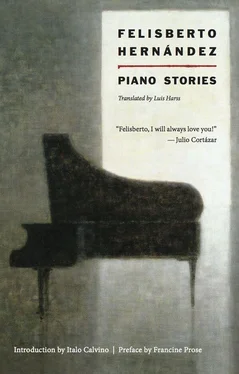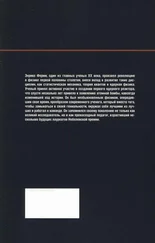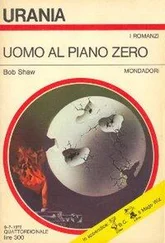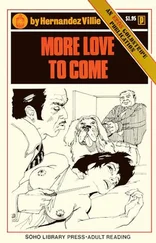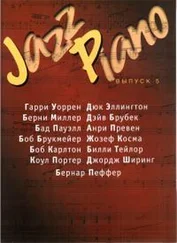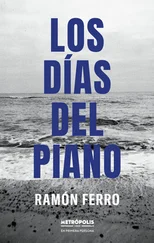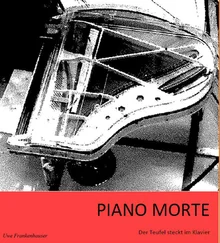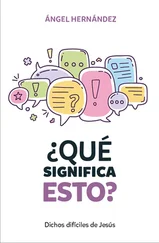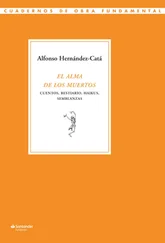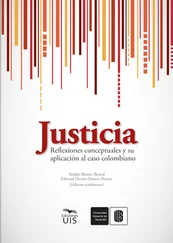Felisberto Hernandez - Piano Stories
Здесь есть возможность читать онлайн «Felisberto Hernandez - Piano Stories» весь текст электронной книги совершенно бесплатно (целиком полную версию без сокращений). В некоторых случаях можно слушать аудио, скачать через торрент в формате fb2 и присутствует краткое содержание. Год выпуска: 2014, Издательство: New Directions, Жанр: Современная проза, на английском языке. Описание произведения, (предисловие) а так же отзывы посетителей доступны на портале библиотеки ЛибКат.
- Название:Piano Stories
- Автор:
- Издательство:New Directions
- Жанр:
- Год:2014
- ISBN:нет данных
- Рейтинг книги:4 / 5. Голосов: 1
-
Избранное:Добавить в избранное
- Отзывы:
-
Ваша оценка:
- 80
- 1
- 2
- 3
- 4
- 5
Piano Stories: краткое содержание, описание и аннотация
Предлагаем к чтению аннотацию, описание, краткое содержание или предисловие (зависит от того, что написал сам автор книги «Piano Stories»). Если вы не нашли необходимую информацию о книге — напишите в комментариях, мы постараемся отыскать её.
Piano Stories
Piano Stories — читать онлайн бесплатно полную книгу (весь текст) целиком
Ниже представлен текст книги, разбитый по страницам. Система сохранения места последней прочитанной страницы, позволяет с удобством читать онлайн бесплатно книгу «Piano Stories», без необходимости каждый раз заново искать на чём Вы остановились. Поставьте закладку, и сможете в любой момент перейти на страницу, на которой закончили чтение.
Интервал:
Закладка:
“Although the secrets of grown-ups could be glimpsed in their actions and conversations, I had my favorite way of uncovering them — when the people were absent and I could find their traces in something they had left behind. It might be a forgotten object or simply one left temporarily in place — or better yet, hurriedly, out of place — while they were gone. . What mattered was that it had started to fulfill sonic purpose or to mean something to the person who used it, so that the moment it was left unattended I could begin to trace that person’s secrets in it.”
We are intrigued, even maddened, by a growing suspicion that all this has some simple explanation that we are always just on the point of “getting.” Meanwhile flashes of comprehension — and identification — occur on this dreamlike level. We find visionary affirmations of our own irreducible uniqueness, intimations of something shared with our fellow dreamers. If Chekhov and Carver can make us feel that we have had the same experiences, felt the same emotions as their characters, Hernández, like Schulz, convinces us that we must have had (though perhaps we have forgotten) the same dreams as the writer.
As it happens, many of Felisberto Hernández’s stories are about the consequences of being invited into houses. Often his heroes are lonely young men who find it “important” to enter strangers’ homes and are admitted to places in which something bizarre transpires, unremarked and as a matter of course, as wonders do in dreams. One house has been flooded as an aquatic memorial to the husband of an alluring fat widow who paddles a rowboat around her room. In another, a woman falls in love with her second-floor balcony. A rich man holds charity dinners for poor expatriates because of a promise he made when his daughter was saved from drowning; one of his guests, a movie usher who can see in the dark, watches his host’s daughter sleepwalking, holding a candelabrum. In the novella “The Daisy Dolls,” a man’s obsession with slightly-larger-than-life-sized female dolls, tableaux vivants , and practical jokes enmeshes him and his wife in a gluey web of jealousy, betrayal, and murder.
Frequently, the nervous guest is a pianist on tour, playing concerts in small towns, partly, he says, so as to make “new acquaintances who would help me find my way into unknown houses.” He is hired to play tangos in dim parlors suspended in perpetual twilight, in the dark dining room of the elderly Miss Moppet (a South American Miss Havisham) and her lusty servant, Dolly. His concerts are torture: one-night hells of bad nerves and worse luck — as was often the case with Felisberto Hernández himself. His debut concert performance (in Montevideo in 1927) was a disaster involving a too-small tuxedo, lost shoes, and a stage floor so tilted that it was necessary to prop up the piano, in which someone had accidentally left a tuning fork.
In a short essay entitled “How Not to Explain My Stories,” Hernández wrote: “My stories have no logical structure. Even the consciousness undeviatingly watching over them is unknown to me. At a given moment I think a plant is about to be born in some corner of me. Aware of something strange going on, I begin to watch for it, sensing that it may have artistic promise. . All I have is the feeling of hope that it may grow leaves of poetry or of something that could become poetry when seen by certain eyes.”
He was wise to compare his work to poetry, since his narratives affect us more in the ways that poems do than conventional fiction can. Like poetry, they depend for their power on image and rhythm, on glimmers of an intuitive comprehension that transcends (and subverts) reason, rather than on cogent argument and logical progression. (We think of Emily Dickinson, of the grace and playful wit with which her work defies our demand for obvious, clear correspondences and connections.)
Appropriately, Felisberto’s work is also a bit like music. Reading his stories, we may imagine a piano playing softly in the background: the romanticism of Schubert, the melancholy, lyrical, ordered discord of Debussy or Satie. His work has the essential mysteriousness of poetry and music, and even his simplest tales — in “No One Had Lit a Lamp” a writer reads to a group of people and then talks to some of them afterward — are troubling and portentous in ways that resist explanation.
For all their mystery, Felisberto’s stories are accessible; his plots are easy to follow and can be read without strain or the sort of cerebral acrobatics we associate with “meta-fiction.” And yet one always feels that he is writing about a slightly different but parallel universe, in a variant language with its own literature and conventions. It’s anyone’s guess why his plots start and finish where they do.
What’s remarkable, then, is how quickly Felisberto’s idiosyncratic decisions — not only about literary form, but about logic and reality — begin to strike us as not merely right, but perfect and inevitable. How deftly his art seduces us into accepting the premises of his world: the rules of the house, so to speak. And how surprising, how startling it is when we put down his book and realize that we have been taken just as (and perhaps more) deeply and revealingly into the psyche and into the soul as when we stood outside our neighbor’s window, gazing in.
Reading Piano Stories broadens our range of understanding beyond the sequential, the narrowly rational. And perhaps the reason that we do see more is that we are obliged to look harder, into dusty rooms that may at first appear shadowy and dim — but in which, if we watch closely enough, someone will soon light a lamp.
FRANCINE PROSE
Introduction
The adventures of a penniless pianist, in which humor transforms the bitterness of a life riddled with defeats, are the initial premise from which the tales of the Uruguayan Felisberto Hernández (1902–1964) take their cue. No sooner does he set about recounting the petty woes of a life lived between the orchestras of the cafés of Montevideo and concert tours through small provincial towns of the Rio de la Plata region, than the page begins to fill with gags, hallucinations, and metaphors in which objects take on as much life as people. But this is just the beginning. What really unleashes the imagination of Felisberto Hernández are the unexpected invitations that admit the shy pianist behind the doors of mysterious houses, lonely quintas inhabited by rich, eccentric characters, women full of secrets and neuroses.
A secluded mansion, the inevitable piano, a daintily maniacal and perverse gentleman, a visionary or sleepwalking maiden, a matron who obsessively celebrates her misfortunes in love: one would say we have here all the ingredients of a romantic tale à la Hoffmann. And there’s even the doll that seems in every way a young woman. In fact, the story “The Daisy Dolls” involves a whole series of dolls (cousins to “Gogol’s Wife” according to Landolfi) who rival real women: created by a devilish manufacturer to stoke the fantasies of an eccentric collector, they end up unleashing marital jealousies and stirring up murky dramas. Yet any possible reminiscence of a Germanic imagination is immediately dispelled by the atmosphere of these afternoons spent sitting in a patio slowly sipping mate or at a café watching a ñandú ostrich walk between the tables.
Hernández’s most typical stories are those that are centered on a rather complicated mise en scène, a spectacular ritual that unfolds within the depths of an elegant house: a flooded patio in which lighted candles float; a little theatre of dolls large as real women striking enigmatic poses; a dark gallery in which one is supposed to recognize by touch objects that elicit associations of images and thoughts. If the point of the game is to guess the story represented by the scene of the dolls, or to recognize what is placed on the table in the dark gallery, what matters most to the emotions of the participants are not so much these innocent riddles as the chance occurrences, the overlapping noises, the premonitions that invade one’s consciousness.
Читать дальшеИнтервал:
Закладка:
Похожие книги на «Piano Stories»
Представляем Вашему вниманию похожие книги на «Piano Stories» списком для выбора. Мы отобрали схожую по названию и смыслу литературу в надежде предоставить читателям больше вариантов отыскать новые, интересные, ещё непрочитанные произведения.
Обсуждение, отзывы о книге «Piano Stories» и просто собственные мнения читателей. Оставьте ваши комментарии, напишите, что Вы думаете о произведении, его смысле или главных героях. Укажите что конкретно понравилось, а что нет, и почему Вы так считаете.
